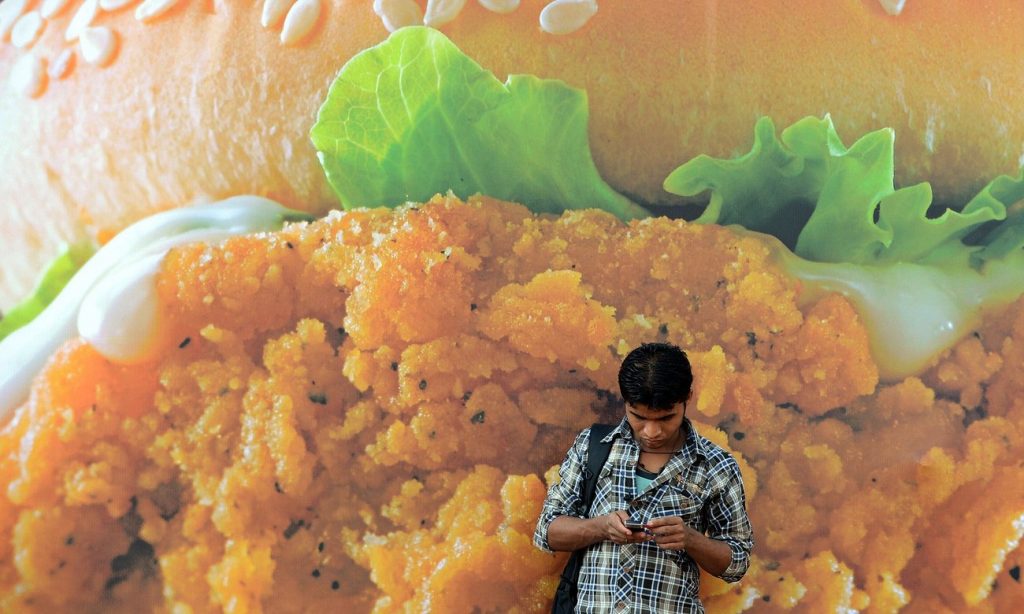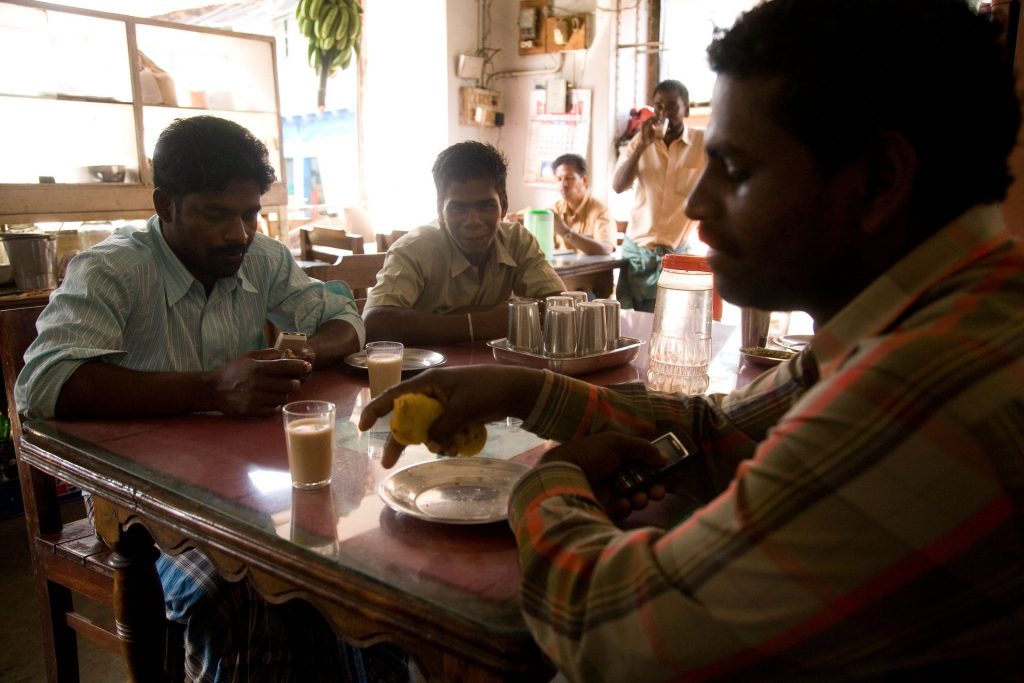
Meera Pandey* remembers the day she tasted her first hamburger. It was about 10 years ago, in her hometown of Kochi, in the south Indian state of Kerala, at a new fast food restaurant. It tasted like nothing she’d ever eaten before. “I loved it,” she says. “It was so different.”
Pandey loved burgers so much that she decided to open a gourmet burger restaurant, one of only a handful in her city. Kochi is full of traditional restaurants, and a few fast food chains. Only a small but growing number of people had a palate for western cuisine. “I wanted to show people what a real burger tastes like – not just what you get in other restaurants, which is two buns filled with frozen patties. It is something special, something new.”
But now, only a year after Pandey’s restaurant opened, Kerala has become the first state in the country to introduce a “fat” tax on junk food, such as hamburgers and pizzas. “It could seriously reduce our footfall if prices go up,” says Pandey.
The 14.5% tax was introduced this month in the annual state budget. Thomas Isaac, Kerala’s finance minister, said the tax would add 100m rupees (£1.1m) to the cash-strapped state’s coffers and simultaneously make people more conscious of their food choices.
“This is more of a preventive measure as Kerala’s food habits are changing dramatically. People are eating a lot of junk food and rejecting traditional food,” he told the BBC.
Paradoxically, India has high rates of both obesity and malnourishment. According to the World Bank, the number of malnourished children is double that of sub-Saharan Africa; at the same time, India ranks third in the world for obesity, after the US and China, according to a study in the Lancet. The dichotomy reflects the polarisation of India’s population, where some of the world’s poorest people live next door to some of the country’s richest.
Many doctors blame India’s ever-expanding waistlines on unhealthy eating habits imported from the west, and increasingly sedentary lifestyles in the rapidly urbanising nation.
According to a national health survey, Kerala is the second most obese state, after Punjab. Dr Haris Azeez, a gastric bypass surgeon, calls Kerala the “sugar bowl” of India. “Five years ago, my clinic only used to get one or two patients a month,” he says. “Now we’re doing 15 to 20 [obesity-related] surgeries in that time.
“Kerala has one of the highest rates of diabetes in the country, and all sorts of other problems linked to weight, such as hypertension, infertility in women and so on. This has been growing since the pizza, pasta, burgers and pastries started coming to India, and also because people don’t exercise any more. I used to play outside when I was a child. Now all the kids just sit and play computer games all day,” he says.
India’s rapid development in the past two decades has seen factories and offices spring up in cities, while malls and fast food restaurants have multiplied. With less physical activity in their work, and more money to spend, the tastes of India’s globalised young people have changed.
In recent years, chains such as Domino’s and McDonald’s have grown in India, but the new tax could halt that, potentially costing thousands of jobs. Domino’s and McDonald’s did not reply to requests for comment.
The minister said branded restaurants would be targeted and that the tax was aimed at the richer, urbanised section of society, whose new, westernised eating habits are causing serious health issues in the state.
But critics argue that the tax penalises the upper classes, yet does little for the health of poorer citizens. “You’ve got to ask,” Pandey says, “what’s the real objective of the tax? Is it really about people’s health? Because Indian food isn’t that good for you either. The Kerala paratha is one of the unhealthiest things you can eat, and people eat that every day. Not like burgers, which you eat just once in a while, maybe once a week at most.”

Photograph: Stuart Forster/Alamy
The vague wording of the tax has also left restaurant owners like Pandey puzzled. “What does ‘branded’ mean? Is it anything with a logo? Or it is a restaurant where the frozen burger patties are flown in from some other part of the world? I still don’t know if our restaurant will be included.”
Few countries have successfully introduced similar “fat” taxes on high-calorie foods. Hungary taxes foods with high sugar, salt and fat. Mexico has a sugar tax. In March, the UK introduced a sugar tax, which has been heavily criticised by the food and drink industry. Fat taxes are still debated in the US – critics say such a tariff could see consumers simply switching one form of sugar for another, such as swapping sweetened drinks for juice.
*Name changed to protect identity
